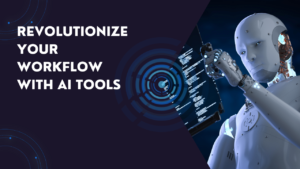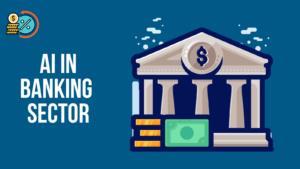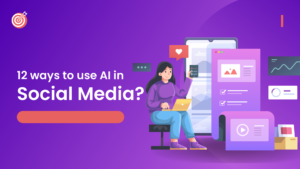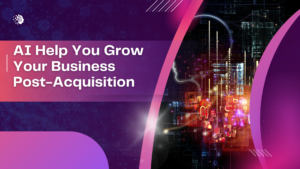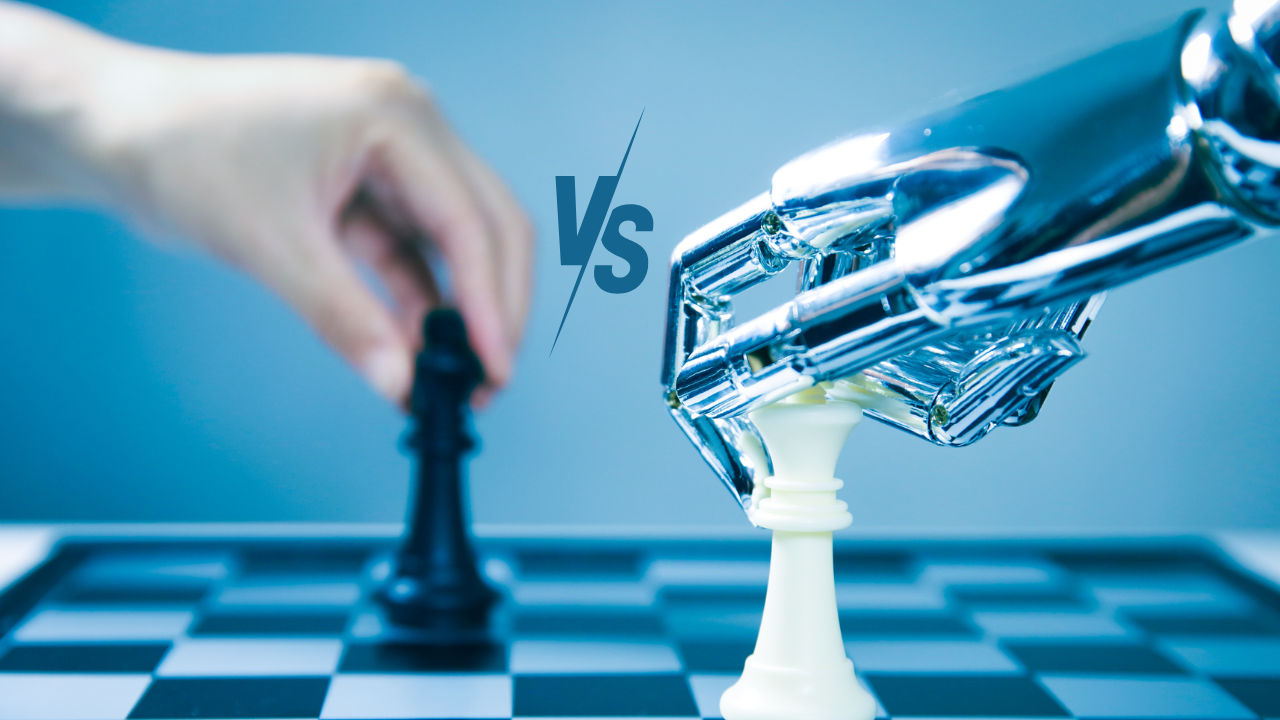
From the realm of science fiction into the realm of everyday life, artificial intelligence has made significant strides. Because AI has become so pervasive in today’s industries and people’s daily lives, a new debate has emerged, pitting the two competing paradigms of AI and human intelligence.
What is Artificial Intelligence?
The term artificial intelligence refers to computers that exhibit traits similar to the human brain, such as critical thinking, decision-making, and productivity enhancement. AI is built upon human insights that are translated into algorithms, enabling machines to perform tasks ranging from simple to complex.
These insights are derived from intellectual processes like research, analysis, logic, and observation. Artificial intelligence encompasses various tasks, including robotics, control systems, computer vision, scheduling, and data mining.
What is Human Intelligence?
Human intelligence and behavior can be traced to a blend of genetics, upbringing, and diverse experiences. It largely depends on an individual’s ability to shape their environment through the application of new knowledge.
The information provided can be diverse. It might include details about individuals with similar skills or backgrounds, or diplomatic insights collected by a locator or spy. Ultimately, it can offer valuable information about interpersonal relationships and the alignment of interests.
What can AI do better than human?
Artificial intelligence systems outperform humans in a range of important categories. AI, particularly machine algorithms, is strikingly effective at processing and integrating new information and sharing new knowledge among separate AI models. The endurance of AI is also superior to human intelligence; machines do not require rest and do not get distracted. And AI works at speeds well beyond those of human intelligence; a machine will outperform a human at most tasks that both have been trained to complete by many orders of magnitude.
What can human do better than AI?
Humans have a distinct advantage over AI in tasks requiring empathy. Our ability to understand and connect with the emotions of others is deeply rooted in our evolution as social beings. Over hundreds of thousands of years, we’ve developed a rich set of social skills that enable us to excel in areas like judgment, intuition, communication, and imagination. These human qualities are far more valuable and effective than current AI systems, which struggle to replicate our capacity for empathy.
Artificial intelligence VS Human intelligence
Artificial intelligence and human intelligence represent two distinct forms of cognitive ability. While both are capable of processing information and solving problems, they differ significantly:
In term of nature, origins, and limitations:
1. Origin: Human intelligence is a product of biological evolution, shaped by genetic factors and environmental influences. AI, on the other hand, is created by humans through programming and algorithms.
2. Nature: Human intelligence is characterized by consciousness, self-awareness, and subjective experiences. AI, while capable of impressive feats, lacks these qualities.
3. Learning: Humans learn through a combination of experience, observation, and social interaction. AI, primarily learns from data and algorithms.
4. Creativity: Humans are inherently creative, capable of generating new ideas, concepts, and solutions. AI, while able to produce creative outputs, often relies on pre-existing data and patterns.
5. Empathy: Humans possess empathy, the ability to understand and share the feelings of others. AI, lacking consciousness and subjective experiences, struggles to emulate empathy.
In terms of characteristics :
Human Intelligence:
- Complex Cognition: Human intelligence involves complex processes such as reasoning, understanding, and emotional intelligence. It allows for abstract thinking, creativity, and moral judgment.
- Learning and Adaptability: Humans learn through a combination of experience, social interactions, and education. They can adapt to new and unforeseen situations with flexibility and innovation.
- Emotional and Social Understanding: Humans possess emotional intelligence, allowing them to interpret and respond to social cues, understand empathy, and navigate interpersonal relationships.
- Consciousness and Self-Awareness: Humans are conscious beings with self-awareness, personal experiences, and a sense of identity.
Artificial Intelligence:
- Task-Specific: AI is designed to perform specific tasks or solve particular problems, often with high efficiency and accuracy. It operates based on algorithms and data rather than human-like cognition.
- Data-Driven Learning: AI systems learn from large datasets through processes such as machine learning and deep learning. They improve performance by recognizing patterns and making predictions based on data.
- Lack of Emotional Understanding: AI lacks emotional intelligence and cannot understand or respond to emotions in the way humans do. Its interactions are based on programmed responses and data.
- No Consciousness or Self-Awareness: AI does not possess consciousness or self-awareness. It operates purely on algorithms and does not have personal experiences or subjective awareness.
In summary, human intelligence is characterized by complex cognitive abilities, emotional depth, and self-awareness, while artificial intelligence excels in processing large amounts of data, performing specific tasks efficiently, and learning from patterns without emotional or conscious understanding.
What about AI and HI working together?
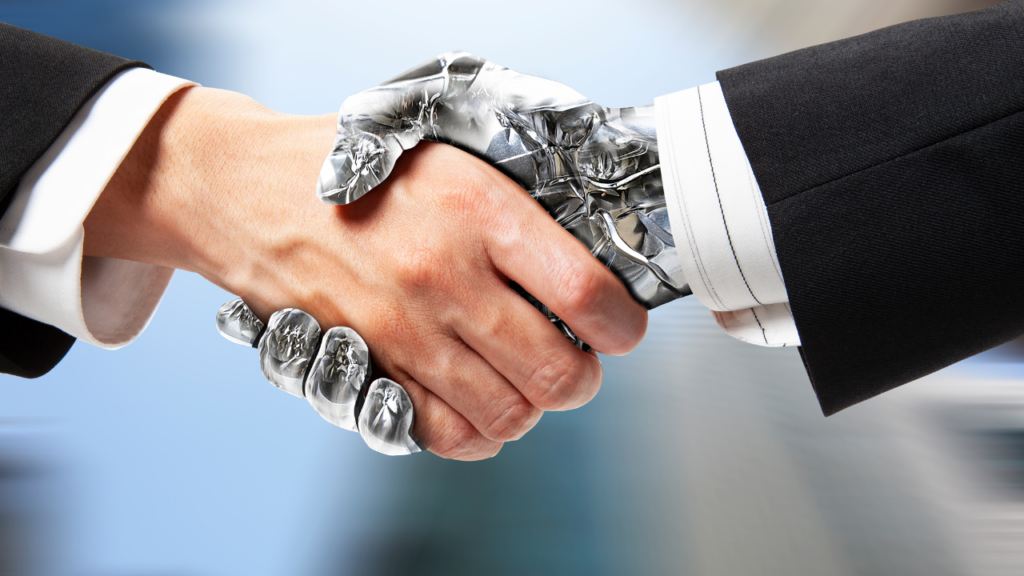
The synergy between human intelligence and AI can lead to remarkable outcomes. Humans bring creativity, empathy, and complex problem-solving skills to the table, while AI excels at data processing, pattern recognition, and automation. By combining these strengths, we can enhance decision-making, increase efficiency, foster innovation, and address complex challenges more effectively. For example, in healthcare, AI can analyze medical images and data to assist doctors in making diagnoses, while humans can provide empathy and context to patient care. In scientific research, AI can help researchers identify patterns and trends in large datasets, while humans can interpret these findings and develop new hypotheses. By working together, humans and AI can achieve breakthroughs that would be difficult or impossible for either alone.
Will AI replace human?
While artificial intelligence (AI) can automate many tasks, it’s unlikely to completely replace humans. AI excels at repetitive, data-driven work and making data-based decisions. However, human skills like creativity, critical thinking, emotional intelligence, and complex problem-solving remain invaluable and difficult to replicate.
The future of AI likely involves a human-AI partnership. AI can augment human capabilities, allowing us to focus on higher-level tasks requiring creativity and expertise. Instead of seeing AI as a threat, we should view it as a tool that can enhance productivity and open up new possibilities.
Conclusion
Artificial intelligence and human intelligence represent two distinct forms of cognitive ability, each with its own strengths and limitations. While AI can process data efficiently and perform specific tasks with precision, humans possess unique qualities such as creativity, empathy, and complex problem-solving. By understanding these differences and working together, we can harness the potential of both to achieve remarkable outcomes and address complex challenges.
The future of AI lies in collaboration with humans, rather than as a replacement. As AI continues to advance, it is crucial to develop it responsibly and ethically, ensuring that it benefits society as a whole. By fostering a harmonious relationship between AI and human intelligence, we can create a future where technology enhances our lives, rather than threatens them.

